#its typecasting at this point
Text
The curse of being voiced by Yuichi Nakamura is that fans always think the character is a sex god when in actuality they are probably awkward as shit when they flirt
#why do people always think this#its the voice it has to be#and i can kinda sorta understand since his voice is v smooth#but damn its like. every character he voices#or almost every character#idk i don't know every one#but a pattern is emerging#bnha#haikyuu!!#jjk#kuroo tetsurou#hawks#gojo satoru#karamatsu matsuno#gray fullbuster#osomatsu san#fairy tail#and others#i think its just that like. he voices a lot of seemingly cool characters#its typecasting at this point#NO WAY I JUST FOUND OUT HE VOICED WEI PANG FROM PIANO NO MORI#which again makes a lot of sense#for those who don't know Wei Pang is at first a distant sort of outwardly cool looking character#looks handsome#and is incredibly good in his performances#but he is a dork#a cool dork but a dork nonetheless#i love him#anyway yeah the point still stands#piano no mori
75 notes
·
View notes
Text
I haven't seriously written original fiction in,,,, a while, but campy British gay comedies and specifically Con O'Neill are rotting my brain in the best of ways lol
#teddy talks#yes im obsessed with a 55y/o man what else is new#its also july#so. thats certainly a Month for me#not many good july memories tbh#well. minus 1 i suppose but even thats more than a bittersweet#anyhow. gay brits are givng me Ideas#(on a related note con is either actually gay or insanely typecast idk which#no one apparently knows which tho i do know he was married at some point. maybe currently.#hes got his personal life locked down and honestly good for him! nobody needs to know his life but him.)
4 notes
·
View notes
Text
i want to experience and express love and care that doesn’t feel like a performance. even if it starts that way i want to be able to eventually shed that role and have that be okay.
#im begging#im so tired bro#i think its worse bc i keep getting typecast as something that is NOT me and ppl get upset when it isnt#so i feel this immense pressure to be this person#like even when i approach ppl differently in a way that feels more authentic#i always have a moment where they say something about how different i am from their expectations#which is fine#but then a lot of the times it gets to the point where ppl feel as if i’ve misled them and im like literally no#i tried to warn you that i may be different than you imagine and you thought i was kidding#like every time i tell ppl hey just to let you know i seem like this but actually im like this#they go okay :) and then are shocked when i am the way i said i was#im cursed to be a manic pixie dream girl#which is fun till its a little too manic and not enough girl#love#what a concept
0 notes
Text
it's yellowjackets / jennifer's body parallels time!
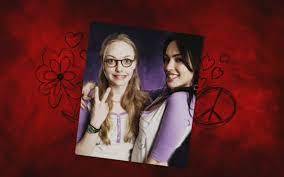

hi hello keep reading if you would like to hear about shauna/jennifer and jackie/needy, here's my totally noncomprehensive, very much off the cuff thoughts on this very complex and interesting dynamic!!
(i'm not getting into the basic parallels, i'm gonna assume you know the karyn kusama of it all, the heart necklace, the homoerotic female friendship, the death)
yellowjackets is so brilliant because it feeds you stereotypes and absolutely does not deliver on them. there could be an entire paper on each girl and how this is true for them specifically, but walk quickly with me because i want to get into the nitty gritty gory fun stuff! a brief oversimplified example: nat is referred to as a burnout, some would assume she's a loner based on that, but she cares about the team as a unit more than arguably anyone else. (this is common in real life too, our stereotypes often don't hold water in reality and yj reflects that beautifully!)
now to the jackie/shauna of it all. it would be oh so incredibly easy to look at jackie and think she's the jennifer of the duo. we are set up to see her as prettier, more popular, more demanding. but that illusion falls apart QUICKLY if you pay attention to the things that jackie actually says and does. she's not a mean girl. she's actually one of the kindest on the team. she doesn't pick on shauna, she clings. there are plenty of takes on this on tumblr so i won't exhaust it, my adhd loves to digress and meander but i'm forcing myself back onto the trodden path to this point: people look at the first few minutes of the pilot and they immediately decide that they know who these girls are. the audience typecasts jackie as a jennifer and shauna as a needy. the popular, bubbly girl and her shy, bookworm best friend.
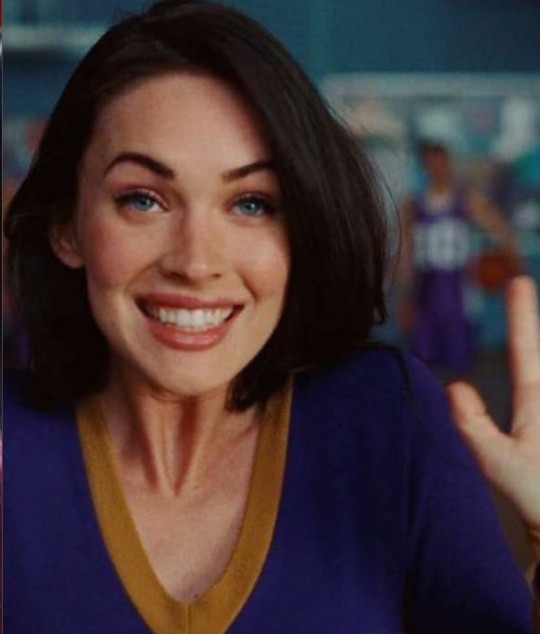
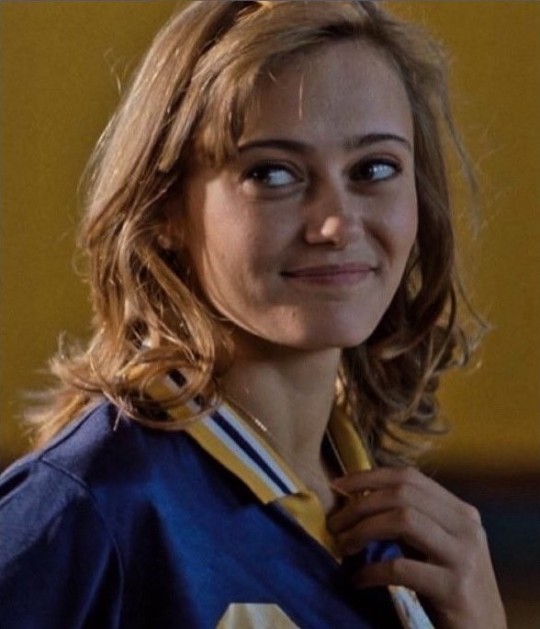

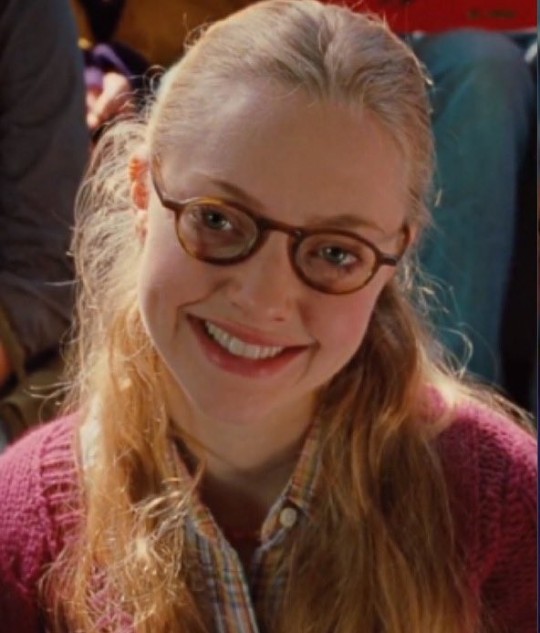
a lot of people, especially casual viewers who don't study this show like its their job (god, wonder what that would be like lol) understandably stop here. but to me the BRILLIANCE of yj is that they don't actually make it HARD for you to undo your initial impressions. the material is there. it isn't hidden. it isn't some deeper self of each character that is unraveled throughout seasons. they push, push, push to see just how far they can carry our deeply held stereotypes/expectations. how forward and violent can shauna be, with viewers still clinging to a shy and sweet girl, who was really their own creation? how kind and honestly pathetic kicked-puppy can jackie be, with viewers still clinging to a mean girl, who was really their own creation? how far will we go to warp the characters intentions, so that we can keep them in the box we understand them in? they ask this of the viewer and of other characters, but AGAIN i digress.
so, while this might sit strangely with some, yes i think that jackie is very much aligned with needy if you peel back just one layer. but far above and beyond that, shauna is so very fucking jennifer.
the overall veneer is thinned immediately in yj. there isn't one girl in the stands and one on center stage. jackie and shauna are both on the team. they go to the same parties, they play the same sport, i would argue that shauna isn't even coded as "less pretty" (please note the word coded, because i'm not saying needy is literally less pretty than jennifer, i am simply saying that we have hair, makeup, clothing, glasses trends that we use to stereotype characters, are you with me?)
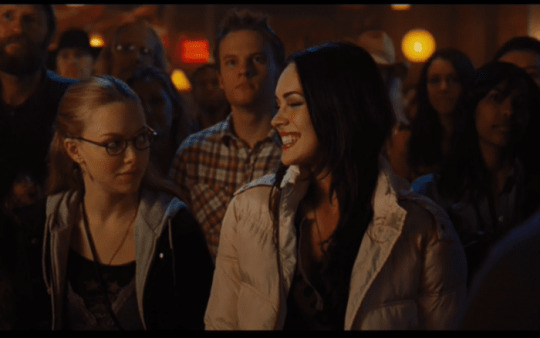

so now what? now these girls are both and neither. shauna thinks that she is the needy to jackie's jennifer. jackie wears the necklace and the introductory shots frame her as important. but we're already diverting from that set-up.
our absolute clearest common denominator here is one that i rarely see people mention funnily enough: JENNIFER IS A SUCCUBUS. she CONSUMES. she KILLS. she WANTS and she TAKES.
now before you get TOO EXCITED!!! i see some of you getting ready to say i'm a shauna shipman hater, put the pitchforks down!! shauna is one of my favorite characters of all time. i love her crazy ass so deeply that it's alarming. (i don't hate jennifer, either, for the record.) i love her largely for WHAT she is. i think sanitizing or sweetening her is a disservice. she's amazing and complex and wounded and capable of deep love. but she also, quite LITERALLY, consumes.
her character is sex and desire and violence and obsession and consumption. and it's AMAZING. she's POWERFUL. she's our main framing character (in this dynamic), rather than needy. the scripts are switched. jennifer dies and needy lives, and that's one story. that's clearer cut, simpler, made for a horror film. but here, jackie dies and shauna lives, and that story is deep and rich and goes on to include a whole lot more death and destruction and chaos.

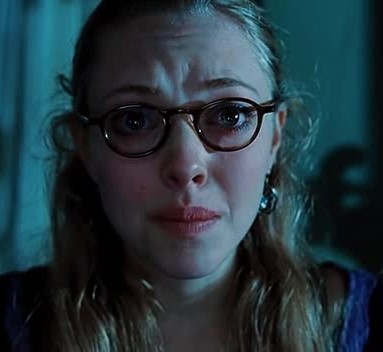
shauna tells us herself that it excites her. she likes it. she is this girl. this woman. she reminisces and she recreates and she covets.
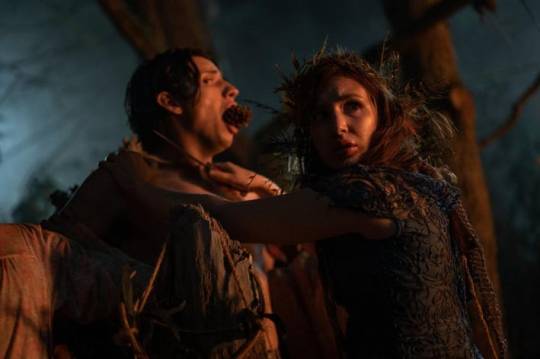
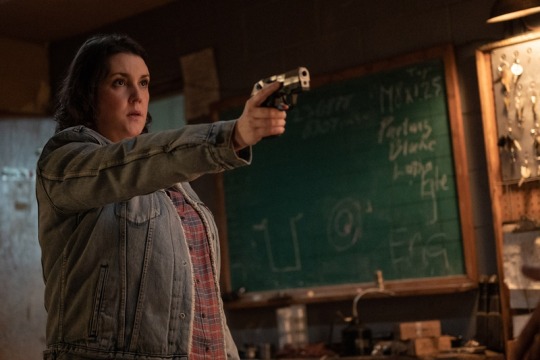
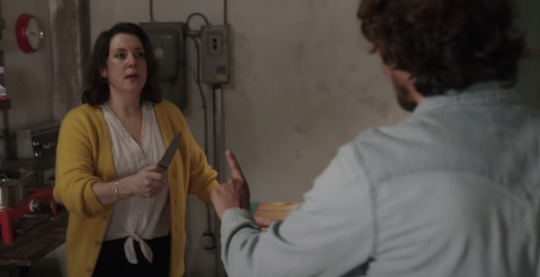

jennifer tries to consume needy, shauna literally consumes jackie.
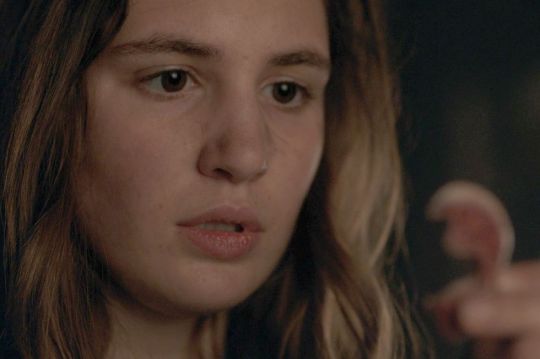

there's more to this story, obviously. you could deep dive and mine for the intricacies of the set up and fall of stereotype and expectation, or collect all of the exact parallels. but i'll stick with a few, because this is a quick outburst of thought.
a huge one, who is taking whose boyfriend?


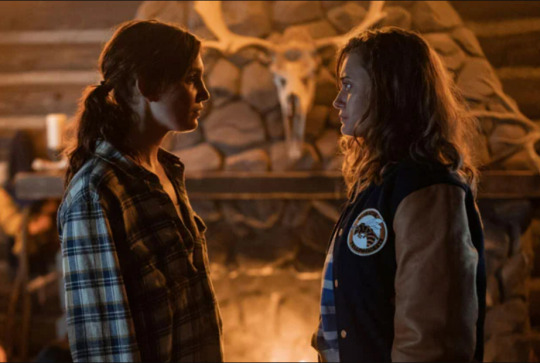

here's another personal favorite of mine, just for kicks


is it too complex to neatly tuck away? absolutely. they're different stories with different themes. shauna isn't simply a teenager possessed by a demon. it runs far deeper. as is the essence of this show.
but if you want to look at parallels, look at the one who has been holding the knife the whole time.
#can you tell both of these stories make me crazy#i love shauna this is not shauna hate this is shauna LOVE do not misinterpret pls#you guys she EATS people!!#anon who just messaged me about this YES I see you I’m with you here are my thoughts lol#yellowjackets#yellowjackets meta#jennifer's body#shauna shipman#jennifer check#jackie taylor#anita needy lesnicki#karyn kusama#shauna x jackie#jackie x shauna#jackieshauna#shaunajackie
391 notes
·
View notes
Text
Dacre Montgomery is ready to work
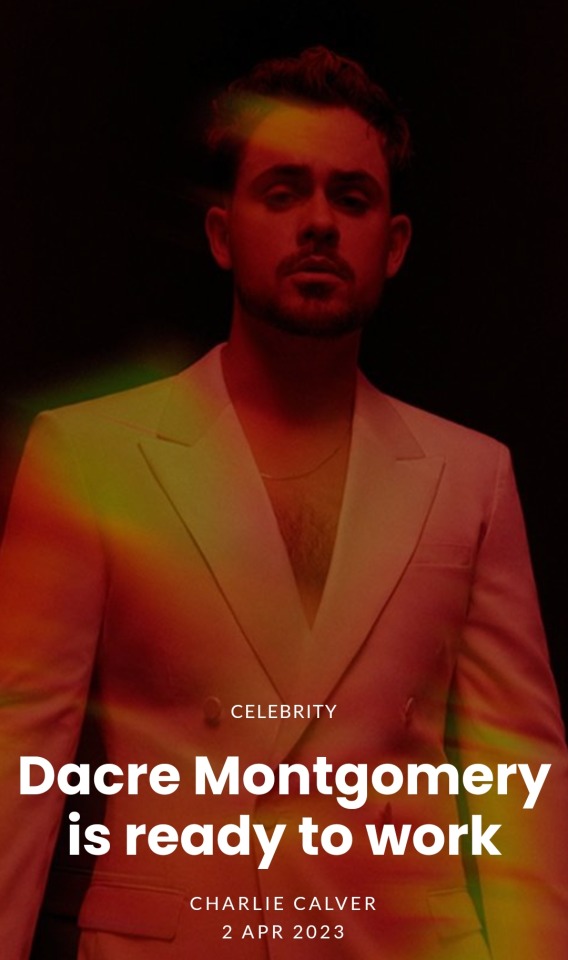
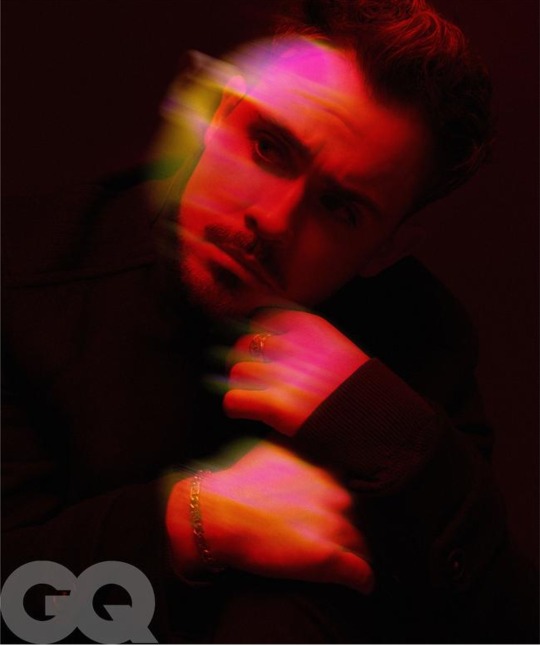
There’s a famous audition tape of Dacre Montgomery’s online. Maybe you’ve seen it; some 18 million people have. And it’s captivating to watch, not just because of Montgomery’s intensity, but because of the clear control that he has at such a young age. That steady ferocity cuts right through the screen, even though he’s just ‘running lines’ against a plain blue backdrop. It also cut through the sea of other actors gunning for a role in Stranger Things and made him Billy Hargrove, the resident bad guy on the sci-fi drama that broke Netflix viewership records on its way to becoming one of the biggest shows in TV history.
It’s been almost six years since that audition made Montgomery a global star, but the man sitting in front of me has lost none of that vigour. Reclining in a side room at a studio in Sydney before the photoshoot accompanying this article, the now 28-year-old looks casual. He’s wearing a plain black T-shirt, white shorts and one of those non-descript navy caps movie stars wear when they want to be incognito. The outfit is a simple one, designed to avoid attention—a far cry from the red carpet fashion that Montgomery favours. But as he starts talking about the thing he loves most—movies and the process of making them—that same intensity takes over; a passion that has him on the edge of his seat.
“When I was in my early teens, all I did was stay in my room and watch movies. And I fell in love with everything,” he says. The reverence, the obsession, is what drives Montgomery, and not just when it comes to acting. On set for today’s shoot, Montgomery—who was recently named the face of Politix’s new autumn/winter “The Gentle Man” campaign—is completely locked in. Unlike some who see an ambassador role as an opportunity to make a quick buck, Montgomery has signed on because he’s excited about the brand’s refreshed look and new chapter. “I don't just rock up on time. I rock up 10 minutes early,” he told me, “I don't just give one idea, I give 10 ideas because I don't engage with anything unless I'm authentically interested in it.”
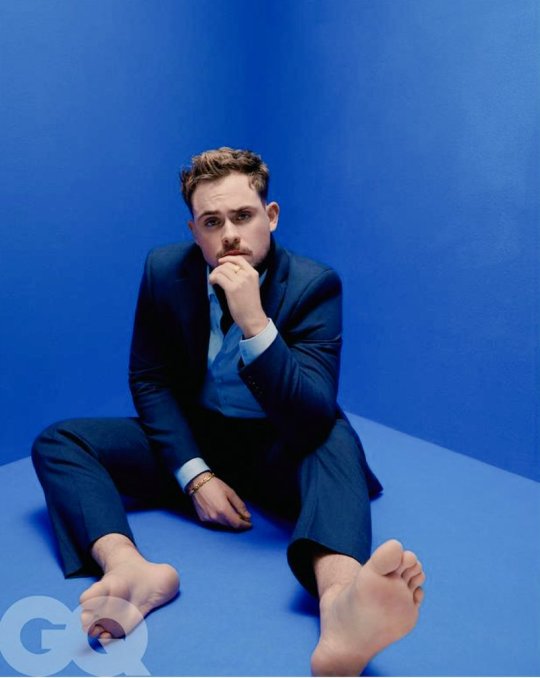
He’s not kidding. After each burst of shots, he pores over them like he’s the creative director, rather than the subject—not out of vanity, but to see if the images are challenging enough. At one point, he grabs a mirror from the corner of the room. “Let’s just try it”, he tells the crew, and proceeds to work it straight into the shoot.
This dedication to perfection hasn’t always been easy for him or the people around him. After Stranger Things, the search for the next perfect role was almost paralysing. “Before I felt like, ‘look, I'm not going to take anything unless I'm 150 per cent invested’,” he says, and eventually, that attitude led to Montgomery parting ways with his team—his management, agents, everyone.
During that period, which he describes as a creative hole, Montgomery tried anything and everything. He wrote poetry (which was released as a book by publisher Andrews McMeel under the title DKMH and turned into a spoken word podcast of the same name), made short films, and dedicated himself to learning the arts of cinematography and screenwriting—at some points, he was watching three films a day, “morning, noon, night”, just like he did as a teenager.
Part of the fear that drove him into that lull was the looming presence of being typecast. When there are roles being offered to you left, right and centre, which one is the ‘perfect’ next step to take? This year, he has started climbing out of that hole, engaging more filmmakers as well as taking on roles like the one with Politix. But, there is still a sense of wariness.
For example, as news broke that Hugh Jackman wouldn’t be returning as Wolverine—a decision that he has since reversed—rumours swirled that Montgomery might step into the role. But for him, it’s about the filmmakers rather than any big-name character. “It’s just finding filmmakers that I'm really interested in working with and going from there as opposed to it being like, ‘oh, I've always wantedto play Wolverine or Bane’,” he says, “but also, I’m feeling a little bit of Marvel fatigue. I’m not really interested in it in the same way that I was.”
Montgomery isn’t alone in his ‘Marvel fatigue’, plenty of moviegoers aren’t as interested as they once were—just look at the recent box office figures—but it’s another example of how he’s a film fan first, and an actor second. He can thank his parents for that.
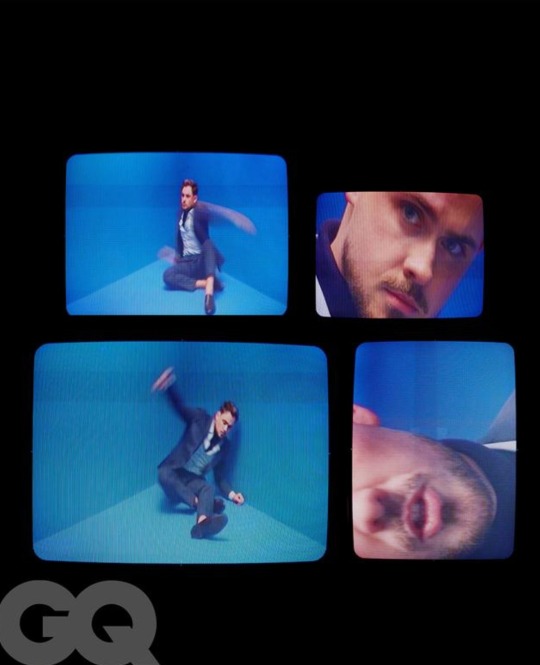
“My dad started taking me to films that I shouldn't have been seeing when I was a kid,” Montgomery says, “but he worked in the film industry and he would explain to me the process of everything.” From the very beginning, he was exposed to not just the definitive films of the time, but also how they were made. His mother and father would take him to the sets they were working on and show him the ins and outs. “It was like, ‘here’s the unadulterated version of the world and the industry and here are all the ins and the outs of how movies are made.”
For some actors, fame, as much as the films that inspire them, is a driver. And it’s only if they reach a level of success that they really see how the sausage is made—which is not always pretty, especially if they aren’t backed by a huge studio. Thanks to his parents, Montgomery is a rare actor who has always known about the gritty reality of making low-budget films—the long days, the repetition, the egos—but that’s what he fell in love with. “I'm not here for money or notoriety or anything like that,” he says, “I really care about the work and that's what I'm there for.”
But it’s that moment when he actually steps in front of the camera and it’s time to perform that has always had Montgomery hooked. “When you’re on set, I don't try to take up too much space and I wait until it’s my time to go in front of the camera and do my little thing. But when I do that… It's ecstasy. There’s nothing but that moment, do you know what I mean?”
Though it’s been a few years since Montgomery has had those moments and shared them with the world—Elvis, in which he was a scene-stealer, was largely filmed in 2020—he’s getting back to work. “I am climbing out of that [hole] and what that looks like is me engaging with more filmmakers,” he says. Of the three filmmakers he has agreed to work with—at least publicly—one thing is clear: they aren’t interested in making simple, sugar-coated work.
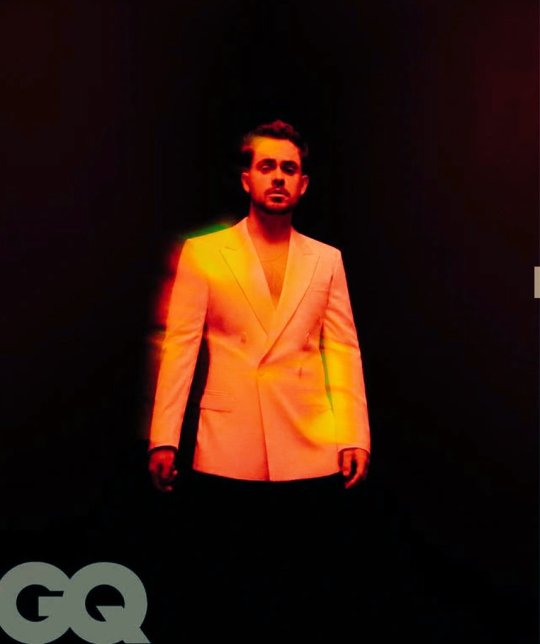
The first film we are likely to see in Montgomery’s next chapter is Spider & Jesse, directed by Dan Kay, which dives into the far-reaching consequences of addiction. “It’s about two girls that find their mother dead in the first scene and they bury her in the backyard so they don't have to go into the foster care system,” Montgomery explains, “I play the mum’s ex-boyfriend that was dealing her the drugs.”
It’s an unglamorous role with limited screen time, but that didn’t bother Montgomery because it was clear the film, and the people behind it, had something vital to say. “I realised they were on a mission to give insight into the people that are affected by addiction—family, friends, and people they're associated with rather than shedding light on the addicts themselves.”
Filming on Spider & Jesse, which took place in Florida, has already wrapped, but Montgomery’s other two projects are yet to begin production. Both are ambitious, and both defy simple explanation. The first, titled Went Up That Hill, comes from Samuel Van Grinsven, a New Zealand-born, Sydney-based director who became a festival circuit favourite with his feature debut Sequin in a Blue Room.
In essence, Montgomery says the film is an assessment of abuse and how trauma lingers from our childhoods. Beyond the message of the film though, it’s the challenging acting work—he’s heading to Berlin to work with co-star Vicky Krieps (Phantom Thread, Old), Van Grinsven and a movement coach to prepare for the complex role—that has attracted him.
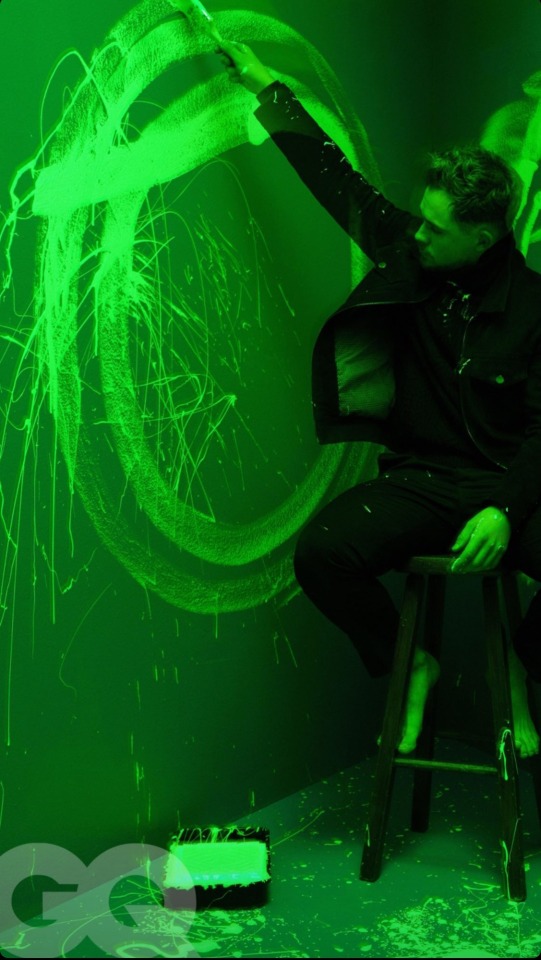
The same goes for Faces of Death, the other project Montgomery has been linked to, which is a remake of a 1978 American mondo horror film notoriously banned for years in countries across the world, including Australia, due to its graphic depictions of death. “I have a really interesting co-star [Euphoria’s Barbie Ferreira] who I love, and the character is a serial killer, and for me, it was like, ‘what’s the thing that’s going to scare me so much about creating this character?’” he says of the film, “So I rang the director and I was like, ‘I want to go visit a serial killer in a state penitentiary in the state of California when I'm back because it scares the shit out of me’.”
After these films wrap up, Montgomery plans to start his journey into directing. “I want to direct my first movie and right now I'm in the process of working on the script with my writer and then I'm going to go on the process of trying to put the movie together,” he says, and he won’t give much more than that away, but if there’s anything we’d wager on, it’s that the movie will be challenging—both to make and in concept.
If these types of films don’t sound like they’ll be box office smashes or Oscar bait, Montgomery isn’t worried. “To me, the success of the movie is in the making of the movie,” he says. “And the outcome of the movie looks like a cathartic experience making [it], as opposed to some other thing like, ‘Oh, I want to get into this film festival and I want the film to have a 4.0 on Letterboxd.’ That's not what I'm doing it for.”
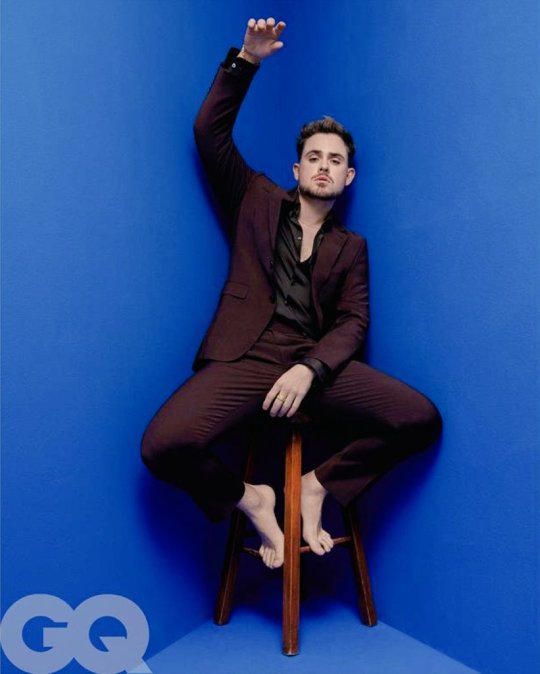
The same attitude goes for his partnership with Politix. Beyond filmmaking, Montgomery is passionate about the way that fashion allows him to control his direct experience. “I suffer from incredibly bad OCD,” he shares, “And I have always found comfort in controlling my surroundings, and that is fabric. My mood is very affected by what I have on my skin and what I have in my space and what I can smell and all that sort of stuff bleeds into my personal life aside from fashion.”
As with his project selection in cinema, the aesthetics are one thing, but for Montgomery to come on board he has to believe in the direction of the project.
“I'm interested in [Politix’s] reworking of the company and what they’re doing to reshape it for 2023 and onwards. But what I was genuinely interested in is that sensitivity of masculinity because that really is me. I am a very sensitive person. I'm very sensitive to my space and to interactions in my life. And I think this whole campaign is really about unpacking what is that.”
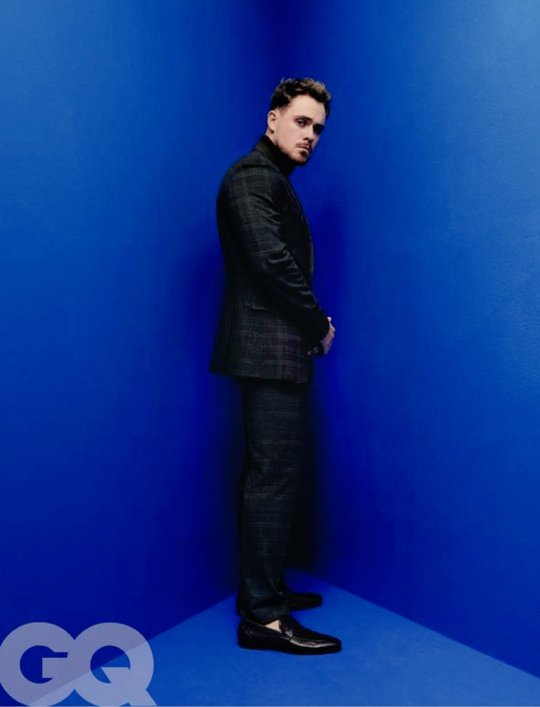
Once Montgomery signed on with Politix to become its new face, as with his films, he was all in. From the campaign direction to the execution of the advertising, Montgomery has been instrumental. He’s not just arriving, taking some photos and leaving—as with the photoshoot accompanying this shoot, he’s trying to make it the best he can.
“I want the product to be good, just as good as they want the product to be and not hopefully from a narcissistic point of view, from a point of view of I want it to be good,” he says, “That's more important to me than the paycheck or how many people see it or how successful the campaign is. That's the through line for me.”
It’s this sheer dedication to craft and passion for the work that has seen Montgomery through to where he is today. It’s what made that Stranger Things audition tape so arresting and, if he pulls off his big swings, may just make him one of the most memorable actors Australia has produced. Whether those ambitious punches land or not, there’s no doubt about one thing: Montgomery is ready to do the work.
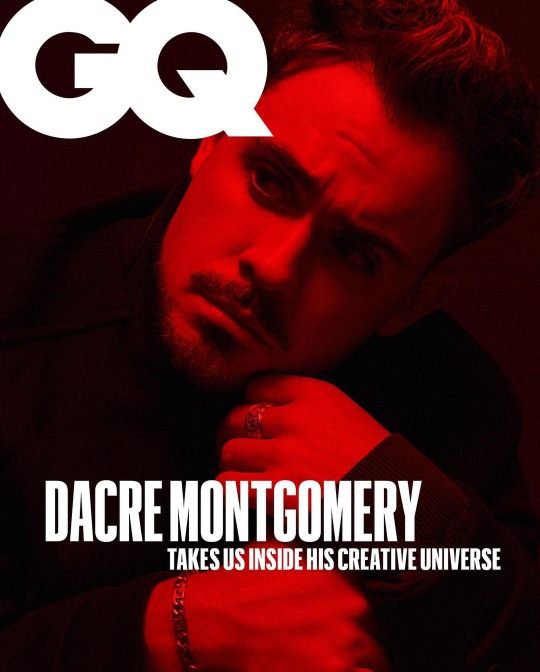
PRODUCTION CREDITS:
Words by Charlie Calver
Photography by Jesse Lizotte
Styling by Miguel Urbina Tan
Fashion assisting by Isabella Mamas
Grooming by Joel Foreman
Production by Jade Carp
Dacre Montgomery wears Politix throughout; politix.com.au
#dacre montgomery#billy hargrove#stranger things#gq#gq australia#politix#spider & jesse#went up that hill#faces of death
263 notes
·
View notes
Text
I watched American Born Chinese, and it is an enjoyable series, honestly. It's silly and fun but it's also a show with a really big heart, it's a show that doesn't take itself too seriously but also makes a point to open important conversations regarding culture and identity, typecasting/stereotyping, the importance of speaking out for yourself, the struggle of breaking the glass ceiling in industries, etc. I also love the many references the show made to art/media forms, like the manga, sitcom, and xianxia, so it's like a study in intertextuality but also feels like a celebration of art. Overall, I could feel that this show was made with a lot of earnest love and thought, and I really hope it gets to tell its story in full!!
#american born chinese#disney+#michelle yeoh#ke huy quan#daniel wu#ben wang#jimmy liu#yeo yann yann#chin han#newt's notes
289 notes
·
View notes
Text
Jackie, Marilyn, and Elle: Comparing and Contrasting two ICONS to remind us that Warner was WRONG
Too BLONDE?? An Introuction
Elle Woods’ iconic journey in Legally Blonde is prompted by Warner Huntington III breaking up with her.The comments made are how Warner needs to be “serious,” and the deep blow of how if he’s to be a senator, he needs to marry “a Jackie, not a Marilyn.”
While in the musical, the scene adds an implication that Warner thinks Elle is “tacky,” Elle’s thought process leads her to summarise Warner’s viewpoint as being that Elle is “too blonde.”
Warner sees Marilyn Monroe and Jackie Kennedy as being two polar opposites- one the sultry actress knows for ‘bimbo’ film roles, and the other the respectable wife of the President of the United States.
But Elle can’t fathom differences between these women aside from their appearance.
Let us analyse what can be compared and contrasted between two iconic women.
In the climax of Legally Blonde, Elle discovers that Chutney Wyndham is the real perpetrator due to her knowledge of hair care. As Elle notes, “any Cosmo girl would’ve known.” It is Elle’s feminine knowledge that guides her to victory in her very first trial. With that in mind, let us examine the feminine knowledge of Marilyn and Jackie as our real-life role models to Elle Woods, and uncover just why she sees so little difference between these fascinating women.
A note before we begin: this is not a competition. But Warner sees it that way, and the purpose therefore is to remind him just how wrong he is.
Marilyn Monroe: Political Powerhouse
Firstly, Marilyn Monroe is known to most as either the glamorous actress of 1950s films- such as the notorious Gentlemen Prefer blondes, which certainly could have influenced Elle’s mindset, especially with the pink drama of the Diamonds are a Girl’s Best Friend sequence. Others may know her from regularly recreated images, such as her holding her blowing-up skirt from The Seven Year Itch, or the pop art portrait by Andy Warhol.
Either way, the most prominent images in the heads of many in regards to Marilyn Monroe are glamorous, sexy, feminine- and blonde and pink, of course.
Famously, like Elle, Marilyn’s femininity and sex appeal lead her to being boxed into roles of the comedic blonde bombshell, though the fought to be out of her typecasting.
After the success of “Gentlemen Prefer Blondes” and “How to Marry a Millionaire,” Marilyn was offered what would have been a third ‘dumb blonde’ in “The Girl in Pink Tights,” she not only refused, but CNN’s article ‘How Marlyn took the male-led film industry and flipped it on its head” notes that she reportedly labelled it “Trash.”
In that same article, Mira Sorvino is quoted. “She was the main attraction,” the actress notes, saying “she was the reason people flocked to the theatre. So it was insane that she wasn’t in a more powerful position in terms of salary.” The reference here is to Marilyn’s discovery that Frank Sinatra, her would-be co-star in “The Girl in Pink Tights” was offered $5000, while Marilyn was offered $1,500- a third of Frank’s pay.
The article points out that Marilyn’s contract was changed after the snub, showing Marilyn to be valuing her feminine charm and wiles that made her studio so much money and garnered them so much attention. Is this why Warner does not wish for Elle to see Marilyn as aspirational, given she was something of an upstart?
Not to mention, Warner doesn’t seem like the biggest advocate for equal pay…
A lesser-known contribution that Marilyn made to her society was in the civil rights movement, drawing attention to Ella Fitzgerald.
The Biography article by Sara Kettler titled “Ella Fitzgerald and Marilyn Monroe: Inside Their Surprising Friendship” opens with a photo of the songstress and the starlet smiling together in conversation. Kettler notes how Marilyn helped Ella get a gig in Mocambo, the famous LA nightclub. Marilyn “promised to come every night” that Ella was booked, and to “bring along other celebrities.” With this promise of publicity, Ella was granted several weeks employment at the famous club.
Kettler also notes that, despite Ella’s success, some clubs would hire Ella, but still have her enter through the side door “due to the colour of her skin.” In order to combat such prejudice, Marilyn “refused to go inside unless both she and Fitzgerald were allowed through the front doors.
Marilyn may not have been dying on the front lines of the civil rights movement, but she was using her status to forward the career of someone directly affected by said movement.
Marilyn used a name built as a blonde bombshell in order to be an influential activist, just as Elle Woods being a Cosmo girl is what won her her first legal trial.
Have we emphasised enough that Warner doesn’t know his rear end from his elbow when it comes to powerful women? Perhaps Warner doesn’t want a Marilyn, not because she’s blonde, but because she was an upstart who knew her own mind and fought to make her own way in the world. Is that just too much for him to handle?
Jackie Kenney: First Lady of Fashion
On the side of Jackie Kennedy, later Jackie Onassis, she is of course best known due to her time as First Lady of the United States. She was from a respectable family, studied French literature in university, and is perceived largely as classy, elegant, and educated. To this day, she is cited as an image of grace, with This week in Libraries magazine writing “In the realms of elegance, poise, and grace, one name reigns supreme- Jackie Kennedy.”
While Jackie’s other accomplishments are not to be overlooked, let us focus on traditionally feminine aspects of life that she has embodied to remember the value of both aspects of her, and of Elle.
As Vogue writes, “Before Jackie graced the halls of the White House, she trod those of this very magazine,” referring to her job as junior editor of Vogue, immediately showing that, like Elle, Jackie not only had political potential, but fashion icon potential early on in her life.
It should be noted that Jackie “quit by mid-morning,” as the environment was not suited to her goals, however, she is still heavily associated with the magazine as she contributed to salvaging the Temple of Dendur, which has played host to the Met Gala, as noted by Vogue.
This Week in Libraries also notes Jackie as a “Style Icon,” praising her boucle suits, pearls, and, of course, her pillbox hats- the latter being described as “synonymous with her name.”
It’s also not just her connection with Vogue that cements Jackie’s name in the world of fashion, as countless articles have addressed her style as “timeless” or “iconic,” so why exactly does Warner have such an issue with committing to a woman with a degree in fashion merchandising?
Town and Country’s list “11 Brands Jackie Kennedy Loved” notes how Gucci named the Jackie bag after her, and I wish for that kind of influence for Elle Woods, which I thibk highlights just how much of an influence that Jackie would have potentially had on Elle.
Warner, your Jackie was in front of you all along.
And of course, while steeped in tragedy, it is nonetheless fair to say that one of the most iconic images of Jackie is of her pink suit on the day of her husband’s assassination. Loathe to overlook the horrors of such an event, but be that as it may, it emphasises that Jackie Kennedy is just as pink and pretty as Marilyn Monroe.
In the Legally Blonde sequel Red, White, and Blonde, Elle even sports a tribute to this suit, which really sends home how far Warner is from the mark.
On that note, let us now discuss beautiful pink outfits worn by Jackie to intensify how connected Jackie can be to Elle. Firstly, the aforementioned suit became an iconic moment of defiance as Jackie bore the bloodstains, cited as saying “let them see what they’ve done.”
She also had a similar sleeveless suit designed by Oleg Cassini, as well as a matching coat and hat worn in New Delhi.
One of her other beautiful pink moments was a floor length, strapless Dior gown worn with white opera gloves. Other pink outfits include a dress with a unique pink bow detail by Joan Morse, and a high-collared suit by Oleg Cassini. The point here is not to simply list pink outfits, but to remind us that a woman- such as Elle- can be fashionable, elegant, and bright pink, AND be a force of change.
Elle Woods knows that Marilyn and Jackie had it all: fashion girl status, and cultural and political know-how; and frankly, it’s lucky for her that Warner knew less about these iconic women than she did.
Always have Faith in Yourself
And to my masculine girls, you’re the real winners here, because Warner would probably be threatened by your vibes. Not only are you valid, but take comfort in not attracting Warner Huntington III.
Let us remember to value our own self worth, just as Elle did when she shows us all how valuable she could be- and she did it in a playboy costume.
WE DID IT!! To Conclude
In conclusion, my place is not to overlook one woman, or pit her against another; it is not to overlook one woman’s achievements and put them against the achievements of another woman; it is not even to claim traditional femininity as a pinnacle of achievement, or to explore what it means to be a feminist, or anything so grandiose.
My intention here is just to remind us all, whether we relate more to the story of a Marilyn or a Jackie, to always have faith in ourselves, and to always remember that the Warner Huntington III we have in our own lives is a bonehead.
#essay#pink academia#pinkacademic#pink academic essays#elle woods#legally blonde#marilyn monroe#jackie kennedy
21 notes
·
View notes
Text
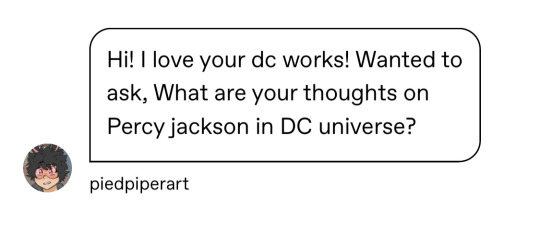
@piedpiperart
Okay, I'm awake now!
Since I wrote a lot of DP x DC stuff, I think that, in general, Danny Phantom is more flexible than Percy Jackson is both in tone and in content. A lot of that is due to how flexible the material is, and a LOT of that is due to the fans putting in the hard work to really mold Danny Phantom (show) into a bunch of different shapes and genres and tones and atmospheres over its cancellation years, which make blending it with, like, crime shows and grim dark stuff and other sci-fi properties pretty easy. But Percy Jackson... it has a harder line between what "fits the vibes" or "doesn't fit the vibes" as far as content goes. It's a middle grade series. Sure, kids died, but not in the same sort of...uncaring tone and perspective DC uses for death and despair, you know?
I think I've read one fic where I was like "yeah, I can see this happening" with a DC x PJO crossover at its base, and that was because Annabeth was cast as a hot and upcoming villain in opposition to the main cast. Typecasting the Greek vibe worked well enough. A lot of the PJO stuff isn't super compatible with DC lore...like, at any point would Diana or other Amazons let half-god kids, like, run amok and let them fight their own wars without at least some amount of supervision? If there were world-ending divine catastrophes, wouldn't SOMEONE with a divine hotline be rung up, like capt. Marvel at least? 🤷🏽♀️ Saying yes to that neglect changes the empathetic feel of the DC characters, and saying no that they would know and adding them to the universe fundamentally changes how camp and such operate, and saying that they had no idea that the other existed changes the assumed competence of the adult DC characters. It's much easier to conceive that, say, no one knows what's on the other side of dimensional portals or at the bottom of an already poorly understood pit of Evil Goo Water than it is to be like "hey Batman doesn't know about the kid soldier training camp that's been around for hundreds of years and is within driving distance from his house!"
I suppose its not impossible to have a faithful DC adaptation based in PJO ground layer canon. What do I know? All I can say is, I've tried reading a few, and largely the fics change just enough of the fundamentals that the sensation of reading them is just...weird. to me. personally. I think sizing the perspective down to have one on one character interactions or individual experiences might work better than slapping the worlds on top of each other for something more comprehensive and meaningful, since the overarching stories have such vastly different perspectives. Also you should do whatever you want anyway and my opinion has no bearing on what you enjoy or seek out.
My favorite PJO crossover to this day is a Supernatural x PJO fic on FFN. Literally all it consisted of was the main two supernatural dudes interrogating why some goth kid (Nico) threw some other kid (Percy) into the lake to drown. The lying was so bad. The confusion/concern was palpable. The vibes were impeccable. 10/10.
274 notes
·
View notes
Note
What do you think Light would be if not a detective?
I like to think Light would become an idol after getting scouted, then go into acting with the goal of using his newfound fame for activism. Very, ah, unlikely, I know. But its a fun thought 🙈
What's your non-detective career for Light?
Okay!! This is a fun question and I've been turning it around in my head for a couple days lol. Apologies in advance, my brain took this not as "what do I think/like" but as "how would I write this" and boom, I ended up overthinking it and making a couple of AUs....again. Hope it's at least amusing!
Actor AU.
I actually really like this AU, entertainment-industry!Light sounds really fun, and I don't think your idea is unlikely! Now I don't see him as the sing-and-dance type of idol, but a model and then actor? Yup, I can see this, and I think it would be really fun to explore Light's propensity to live in an act, and make that not only his daily life, but also his career.
So the way this AU would start is fairly simple: he'd be walking, and some famous person, probably Misa, would be doing a public shoot. The male lead doesn't show, so she'd point Light out in the crowd and make the crew add him to the shoot as her boyfriend. The photographer wouldn't protest cause Light is handsome, and MisaMisa is a beloved idol, so why not play along? Light would be annoyed but would also play along cause he's a 'nice guy' (and also cause they'd pay him, so easy money.) Plus they would promise not to reveal his face, which is key here. In Light's mind, it's an ego boost, so why not?
But, of course, the pictures do get out, showing his face and 'devoted boyfriend act,' they're well received by the public. So now Misa won't shut up about him in interviews, starts to insist they're dating, and Light gets some small fame. He's the 'prince type,' and when Misa moves into acting movies, she wants him to have a role, and they give him something small. Light kinda doesn't want to, kinda does, but is mostly annoyed by the 'small role' thing and wants to show them he can do any 'stupid acting job.' And so he does do it, and plays the role very very well, and from there he gets popular. Light starts an acting career, he does it part-time alongside Uni (which is too easy for him, so he'd bored and has free time lol). The acting jobs also pay very well which is his main concern, since they'd help him get his own place. He also finds he doesn't hate it; it's more interesting than tutoring jobs at least.
By this point, he's been typecast as the romantic male lead character or the second male lead, a prince type. Acting is easy for him, he knows what emotions to put on, and so the jobs are pretty easy for him while also building his fame. Eventually, he does this more full time as the roles get bigger, and as you said he also always speaks up for Just Causes in interviews. (to both build his reputation, but also to justify it to himself that he's going this for a 'good reason'). Light developed got a very clean public image, while in the background he's experienced enough shady things in the industry that he learns how to handle it and gets good at buring his opponents. He sees it as an interesting bonus to acting, lol.
Now, here's where the AU gets fun; Light grows bored of generic romance movies, and eventually picks up more complicated scrips. Historical dramas, thrillers, etc. These are more challenging, more interesting, and he soon realizes he can slowly start letting his 'real' self out for the first time in his life, shocking the viewers with his 'realistic acting' in much darker media and roles. Then he'd revert to his good-and-humble prince self in public. He'll be known as a genius actor with a great personality. While internally, he'll also get catharsis by playing darker roles and exploring the emotions he was never able to in his daily life. The act becomes the truth, and the truth the act. It's a cool reversal!
(Bonus points if L one day sees a darker movie of his and is watching very intently and goes "......he's not acting." And gets interested in Light. Boom, I shoved lawlight in there too!)
Politician AU
Okay, now for a darker career path for Light, another AU that I really like to think about: Politician Light Yagami. But this one is actually not a 'If Light wasn't a detective' AU, it's one that takes place years in the future, after the detective bits. In this AU, Light did go to the NPA, climbed the ranks, and eventually he achieved his canon goal of being Director of the NPA. Probably in his 30s, a stupid young age, and everyone is in awe. And Light likes it for a while, he enjoys the power, but then he stats to slowly come to terms with the fact that crime is not the real enemy, its politics. That he can't fix the real problems just by getting rid of the symptoms (criminals) but that it's the sickness itself he has to eradicate. Light gets jaded over the years here, his 17-year-old naivety is gone, and he finds even the Director of the NPA has to bow down to other people (which he hates). But he tells himself it's cause he still doesn't have the power to enact real change. But, most characteristic of all? Light is bored, probably gets there within 3-5 years as the Director. It's boring now, he's reached the top, found it to be unsatisfying, so...now what? Another 20 years of this? Nope!
Now, I don't know anything about the Japanese political system, but I know that Light Yagami, using his position as a political basis, would then run for some type of public office. He'd hand the NPA to a puppet he cultivated, and move on to more powerful positions, climbing higher and higher. His hands would get so dirty, and he'd do some truly horrific things, but in true Light fashion, he'd justify it as being 'for the greater good.' After all, the system is corrupt, and Light is "the only one who can fix it," and only by temporarily playing by their rules can he take charge. Or so he tells himself.
But really, Light just lives for the thrill; the political enemies to outsmart, the people to set up, the 'bodies' to climb over, he lives on it, even while always telling himself it's for the greater good. And to his credit, he does make positive social changes (he needs social support in politics, after all) and he develops a great reputation in both his offices, and as his stint as head of the NPA (since crime went down in his hands.) People trust him, voters like him, and he looks great on a newspaper or magazine cover. He's also very clean politically, because no one can pin him down for anything. Only his fallen opponents know the truth, but even they doubt it sometimes.
In this AU Light Yagami would climb to the greatest social position he could get in Japan....only to eventually realize that the victory of that bores him, too. So he'd have to come up with new goals, new methods, and maybe he'd even turn his eyes on neighbouring countries that are "chaotic" and "ruining his perfect vision of the world." (Let's squeeze L into the AU here, cause someone has to stop Light from starting World War 3.)
Not sure how this would all end, but history would remember him as either a revolutionary, or a terrible dictator. The type of politician no one ever wants to see again.
And, well, there you go!! Two career paths that I can see Light pursuing, and best of all two stories that I think would be interesting to see unfold! Thank you for the fun question!
56 notes
·
View notes
Text
Psycho Analysis: Gus Fring

(WARNING! This analysis contains SPOILERS!)
Breaking Bad is known for its fantastic cast of characters, all of whom have some level of critical acclaim and iconic status. Seriously, go to Wikipedia and go to any character’s page from the show (basically every major character has one) and look at the “Reception” part, pretty much all of them are universally beloved. Chief among that crowd is the only villain in the show to give our rascally villain protagonist Walt a run for his money, the criminal mastermind that is Gustavo “Gus” Fring.
If you think I’m going to do anything other than add to those heaps of praise, you’re surely mistaken; I love Gus as much as anyone else who has seen the show. But where most are willing to overlook certain aspects of the character that don’t work so well because he is cool and gay, I acknowledge those flaws and love Gus anyway. We are not the same.
Motivation/Goals: Gus is a businessman, plain and simple. Be it Los Pollos Hermanos or his secret meth business, Gus wants perfection in every aspect of his professional life. That being said, he’s a pretty fair boss, and if you pull your weight you will be rewarded; he treats his employees at Los Pollos Hermanos so well that you know the show takes place in a fantasy world, because no boss is that nice. And he was way too lenient with Walt all throughout that man’s career working with him.
Of course, Gus is also driven by revenge. Don Eladio, Hector Salamanca, and the rest of the cartel are responsible for the death of his lover Max, and Gus refuses to rest until the entire operation has crumbled, with only him left standing tall and Hecor lefty broken and crippled to be finished off last as he’s the one who pulled the trigger. It’s a very classic villain motivation, and it helps give a little bit of sympathy to a character who is otherwise too cold and mysterious to really delve into the mind of. At any rate, it makes it very easy to root for Gus and cheer him on as he plays his supposed superiors for suckers and orchestrates their downfalls all while coming up with dozens of plans to cover his own ass.
Performance: Giancarlo Esposito has such an air of elegance and menace to him when he’s playing Gus. You can really see why he man ended up typecast after this, playing cunning antagonists, because he really kills it here. He does have one incredibly major flaw, though: He’s not a native Spanish speaker like Gus is. This leads to pretty much any point where Gus is required to speak the language falling flat, especially since most of the time he’s up against actors who are actually fluent and even if you’re not a native speaker you can pick up on how clunky he is in comparison to Michael Mando or Tony Dalton.
Final Fate: Gustavo Fring got outplayed by both Walter and Hector, and the result is perhaps one of the single greatest villain deaths of all time.
youtube
As many have pointed out, it is genuinely hilarious how Gus hated Hector so fucking much that he refused to die in the same room as him. And hey, maybe this isn’t very accurate to how a person would realistically look after taking an explosion directly to the face… But it’s one hell of a cool visual. Sometimes it’s better to check realism at the door for the sake of symbolism and cool prosthetic gore.
Best Scene: I think it is genuinely hard to top Gus’ awesome moments, even if he doesn’t ever really get an entire episode of focus. I think his crowning moment, the moment where we as an audience and Walt as a character learn that us is not even remotely fucking around, is his silent preparations before he comes up to his lackey Victor and violently slits his throat in “Box Cutter,” before equally silently getting dressed once more. Right before leaving, he simply says, “Get back to work” before leaving a stunned Walt, Mike, and Jesse behind.
undefined
youtube
There’s also Gus taking down Don Eladio and all his capos in “Salud.” It’s such wonderful, beautiful vengeance, and it’s all made better by the fact Gus poisoned himself, went to the bathroom, neatly placed a towel on the floor and knelt down on it, and then induced vomiting. This man would pick the fruitiest way imaginable to save his own life.
undefined
youtube
Finally, there is his scene in “Fun and Games,” the first and only time we see Gus just out enjoying himself. We get to see him pretty obviously flirting with a sommelier, but as soon as the man leaves for a moment Gus makes the decision to commit himself fully to his mission and rule out the possibility of love again after what happened to Max. This is the moment where we see Gus fully become the man we know him as in Breaking Bad, and it’s honestly pretty tragic. He could have been happy if he’d just let go some of his hate, and maybe he’d even still be alive.
undefined
youtube
Final Thoughts & Score: Gus is one of the best villains ever to grave television, and considering he’s in a show filled to the brim with some of the greatest villains ever devised, that’s really saying something.
Part of what makes him so genuinely great is just how utterly unknowable he is. Over the course of both Breaking Bad and Better Call Saul, he is almost like a god of the criminal underworld, untouchable and mysterious. What very little tidbits we get of his past paint a conflicting picture that could mean any number of things, and at every other point he manages to command respect and fear from all those around him, with those not wise enough to do so ending up dead by his masterful machinations. It ultimately makes the single scene where we see him not doing business, the one where he flirts with the man at the bar, so much more impactful. We see that Gus has rejected his humanity, his chance at ever being happy again, so that he can be consumed by his work and his vengeance. Gus is what he is by choice.
It’s why, even if it’s not really “good” that Walt won, it is so satisfying and cathartic. Gus spends his screentime pulling off superhuman schemes and feats of vengeance, orchestrating the deaths of the entire Salamanca family and his own cartel superiors, and yet he is done in by an absolute bumbling buffoon of a criminal like Walt. It’s a classic case of David and Goliath, with the untouchable adversary being taken down due to viewing his foe as so far beneath him that he didn’t realize he was screwed until it was too late. Gus was sadly too smart for his own good, never bothering to consider the erratic chemistry teacher could ever pull off anything big enough to defeat him.
With all that, Gus gets a 10/10. With how much I love Gus and how I consider him one of my favorite villains ever, you might be wondering why I didn’t bump him up to a 10.5 to denote him being a cut above the garden variety 10. Well, Gus has one issue with his character that I feels really hampers him in crucial moments: His inability to speak Spanish. Giancarlo Esposito, despite being an absolutely fantastic actor in every other regard, does not speak Spanish and needs his lines given to him phonetically. Native speakers have called his accent stilted and unnatural, and it has led to moments that should be epic and powerful such as his monologue to Lalo before killing him becoming nonsensical gibberish to trained ears. Considering that character is a native Spanish speaker, this is an absolutely unforgivable and glaring flaw. It certainly doesn’t ruin the character, but it does hold him back just a little bit.
But it really does speak volumes that as soon as Gus is taken out, the quality of the villains just plummets. The final season has Walt facing off against a bunch of Nazis and fucking Lydia, the annoying businesswoman. The final season is still peak, but boy are those villains living in Gus’ shadow. In spite of his flaws (or, well, his singular but rather major flaw), he’s still one of the greatest villains in television history, and is up there with Walt and Saul as the greatest villains in the series.
75 notes
·
View notes
Note
can i request 23 for oakworthy? :3c
Charmed (In Your Arms)
23: carrying the other one in their arms
from the touch prompts list!
kai i KNOW u chose this one bc of that one hcs ask and ily for it bc i have been waiting for an excuse to write something about it teehee
also on ao3!
In a perfectly ideal fantasy (of which he has many), Hermie would be the most charming of princes, dressed in an expensive suit, whisking his bride away into the sunset in his very capable arms. The princess, in her elegant white gown, would swoon over his admirable strength, calling him her hero, and he would kiss her cheek with a dashing smile. A choir of birds and angels would sing in harmony, following them into the distance as the curtains drew on their love story.
But “happily ever after” just doesn't seem to be quite in Hermie’s reach yet. Because… Well…
“Wh-Whoa! ” the prince cries out as the weight of the mannequin in their arms tips them over and crushes them on the floor. For–well, not the first time.
…Hermie might not be the best at everything in acting.
They shove the wretched doll off of their definitely-now-bruised body and sit up with a groan. They have to get this down, if they’re ever going to stand a chance auditioning for the prince in the school play. What kind of Prince Charming can't sweep his princess off her feet?
Hermie may have been known for their wonderful acting abilities, but not exactly for their physical capabilities. And though they know the school’s theatre department is not one to typecast, as they’ve been able to land a variety of roles before… a scrawny kid like them is not exactly their first choice for this particular character. It’s not an easy feat to pretend to be a powerful, masculine man when you're just a pathetic non-binary teen who can't even lift a chair without breaking a sweat.
They brush themself off in embarrassment, feeling as though an entire audience has just witnessed their blunder. “Once more, with feeling this time!” they mutter to themself, although the only feeling they have left in them is frustration (and aching pain).
They crouch down to pick the mannequin back up, expecting it to be a herculean task with how tired their arms are, but find lifting it to be a breeze, all of a sudden. Perhaps they really are settling into their role–
“Hi, Hermie! What’s the mannequin for?”
Standing on the other side of the mannequin, holding up its body effortlessly, is Normal. When did he get in here?
Normal is, shockingly, not in the mascot costume at the moment. Standing backstage with his messy hair and casual clothes, it would be easy to mistake him for stage crew. But Hermie is one of the few people who are used to what Normal looks like underneath Teeny. Well, maybe “used to” isn't the right way to put it, in Hermie’s case. Seeing Normal so plainly like this is startling to them, in a way. He looks so much smaller when he’s not in the bulky suit.
The thespian masks his shock by taking on his princely persona once again, giving a stage bow before standing straight and tall (it hurts his back a bit though, since he’s still unlearning his awful Joker posture). “Greetings, Normally.” He rests a hand on the mannequin’s shoulder, as though it really is his betrothed. “I am simply practicing for our future wedding.”
“Oh!” Normal’s cheek flush. “That’s… Oh! You mean, like… the princess! At the end of the play! Oh wow, you're trying out for the…” He trails off as he stares at him, his blush steadily deepening.
“Prince Charming himself, yes,” Hermie finishes for him while he’s still starstruck. His polite smile shifts into a smirk. “It would appear my charms are already working?”
Normal tries to laugh it off, but he’s visibly sweating as much as he does when he’s been at cheer practice. “Ha, yeah, you're uh, doing a great job…” He clears his throat and shakes his head a little. “But, uh. I actually came because a teacher asked me to grab those chairs that got taken in here yesterday?” He points behind Hermie at a stack of chairs sitting against the wall. “I-I wasn't, like, expecting you to be in here, too.”
“Ah, of course.” The prince gestures for him to go ahead, trying to scoot the mannequin out of the way but failing.
The mascot kid scurries past him, clarifying while walking backwards, “Not that I mind seeing you! I'm glad I saw you!” In his distraction, he ends up bumping his back into the chairs. Once again, he laughs it off.
He turns around, grips the base of the bottom chair, and somehow lifts the entire stack with ease.
It's easy to forget just how strong Normal is. Despite his lack of height or a jock-like attitude, this little sophomore can lift. Hermie just doesn't understand how he's able to support an entire pyramid of cheerleaders, with those very arms, just hidden underneath the arms of his costume. Now that is talent.
That's it! Inspiration strikes Hermie (as well as jealousy, but he can handle that just fine, as he has had to before).
“Normal, wait,” he says without thinking it through first. He instantly realizes that doesn't know what he’s doing. Asking Normal for help is admitting that he can't do it himself. He’s supposed to be confident, capable, not asking a school mascot to teach him how to carry his own bride.
But it’s too late, because Normal is literally dropping everything for him right now. He places the chairs back down on the floor immediately and turns back to him with his full attention. “Yes, Hermie? What do you need?”
A truly loyal knight he would make. Perhaps this is a better way to look at this situation: simply the prince calling on a trusted guard to aid him.
The thespian straightens himself again and tries to put on an authoritative air. “The teacher requested you specifically, I imagine, because you are notably strong, correct?”
“Uh…” Normal glances at the stack of chairs. “I mean, I guess? She knows I do cheer.”
Hermie nods. “Yes, and you are able to carry people with great ease, as I have seen.”
The cheerleader scratches the back of his neck bashfully. “I don't know if I’d call it ‘great ease’, but…”
“Normal, do you happen to be familiar with the bridal carry position?”
Normal jumps a little at the question. “I… am, why?” There’s a nervous but somewhat hopeful twinkle in his eye.
Hermie wraps an arm around the mannequin's waist. “I might acquire some… assistance, in preparation for the big day.” He curses his face for beginning to heat up in shame, but at least it’s underneath his makeup. Still, he shouldn't be averting his eyes.
When he directs them back at Normal, he finds his expression to be much more openly flustered than him. As is the mascot kid’s near-constant state, it seems. “Oh, yeah! I’d–I’d love to help! What do…” He swings his arms back and forth. “What’s holding you up about it?”
What’s holding him up is that he can't hold this thing up. “Might I demonstrate with this, and you may critique?”
Normal stops his swinging motion. “Oh. Yeah, yeah, go ahead.”
As soon as Hermie turns toward the mannequin again, the regret starts to hit him. This audience of one is somehow much more pressure on him than the crowds of eyes he’s used to having watch him. His hands hover over the mannequin’s body awkwardly, like a young teen not knowing how to hold their partner at their first dance. He hasn't felt this kind of stage fright in years.
Eventually, his arms settle somewhere along the torso and legs, and, with his breath held, tries this time to just tip the mannequin over and then catch its weight, hoping that that'll make it easier. However, it only ends up starting to pull him down with it, and he lets go before he can go through the even-more-humiliating ordeal of having Normal watch him fall again.
And then Normal laughs. He tries to stifle it with his hand, but it was impossible to miss. Hermie’s cheeks only burn more, as if he’s standing under unbearable stage lights and not just in the dim backstage area.
“Sorry, sorry. I just don't think the mannequin is working for you, man!” He walks over and picks it back up for him. “It and you are too stiff to make it happen!” He looks Hermie over briefly, before chirping, “Here, you gotta do it like this!”
And before Hermie can even protest, he’s being scooped from the floor in one sweeping motion. Normal’s hands, warm though the prince’s clothes, cradle his back and the crooks of his knees. As though he’s nothing more than a pillow resting in his arms.
Even though his hold is steady, Hermie involuntarily swings their arms around the cheerleader’s neck with a very unprincely squeak. The back of his neck is sticky with sweat, but they hang on for dear life anyway.
Normal lets out another giggle, and this time, Hermie can feel it from his chest pressed against their body. He’s so close to them now. Solid. Steady. Warm warm warm–
“Let me down this instant,” the prince demands, feeling suffocated and alarmed as he feels comfortable and safe.
Normal looks down at him (he’s looking down at him for once) with a bright smile. There’s that unbearable stage light. “Of course, your majesty,” he teases in an uncharacteristically smooth voice, and gracefully sets him back down to earth.
As soon as Hermie’s feet land on the floor and Normal’s hands are no longer there for support, they feel their balance falter for the umpteenth time. They try to step away to place some distance between them, but their knees buckle under their own light weight.
But of course, Normal is quick to catch them. An order to unhand him readies itself on Hermie’s tongue, but when the hands draw away just as quickly as they came, he feels the need to lean back into him.
This can't be. He can't be swooning, he’s supposed to be the prince. He’s not supposed to look at Normal, with his dashing smile and very, very capable arms, and feel charmed.
“Once more,” he orders instead. His face feels about as flushed as Normal’s clearly is, and that’s probably becoming more and more evident by the second with how much makeup he’s sweating off, but the show must go on. “With feeling this time.”
Once more, the mascot kid effortlessly sweeps the prince off his feet. Hermie now allows himself to relish in the warmth of his touch, memorizing the way his arms curl around him protectively. To keep in mind for later. To help with his romantic fantasies. As in, to apply when playing as the prince in the play.
Normal then presses the lightest touch of his smiling lips to Hermie’s cheek.
…Hermie may be reconsidering her role now.
#touch prompts#oakworthy#hermie the unworthy#normal oak#dndads fanfiction#dndads fanfic#dndads fic#oakworthy fanfiction#oakworthy fanfic#oakworthy fic#my fic
25 notes
·
View notes
Note
Why is Teferi never allowed to accomplish anything? He didn't get his own spark back that as all Jhoira. He didn't bring Zhalfir back that was Wrenn. They didn't even let defeat Vorinclex in a 1 v 1 ala Gandalf vs Balrog. He got bailed out by a random Zhalfirian or was it Elspeth? He forgets all his spells besides time magic most of the time. Such that Raff Capahsen looks like a better mage. Forgets he knows anything about Artifice. Etc
Meanwhile WOTC lets Kaya easily take out Heliod? And put up a much better fight against Vorinclex. Its not Teferi alone but there seems a lack of respect for the power level and experience of Oldwalkers. It grinds my gears.
Teferi is one of Magic’s most popular characters. No, he’s not a violent power fantasy, and I honestly think that’s cool. He’s smart, charismatic, and often the heart of the group. He was also instrumental in every Gatewatch win since he joined. Teferi didn’t need to kill Vorinclex personally, the nation which he was instrumental in creating did it for him. The whole point of his character arc is that he doesn’t have to, nor should he, be unilaterally solving problems his way. And so that’s what he’s doing: he’s a part of team solutions.
Now I hear you on the power set typecasting, though.
Edit: sorry I posted this from mobile and fixed some typos and actually made a final point about it 😅
42 notes
·
View notes
Text
Year of the Bat - Number 9
Welcome to Year of the Bat! In honor of Kevin Conroy, Arleen Sorkin, and Richard Moll, I’ve been counting down my Top 31 Favorite Episodes of “Batman: The Animated Series” throughout this January.
TODAY’S EPISODE QUOTE: “So, it wasn’t all for nothing.”
Number 9 is…Beware the Gray Ghost!
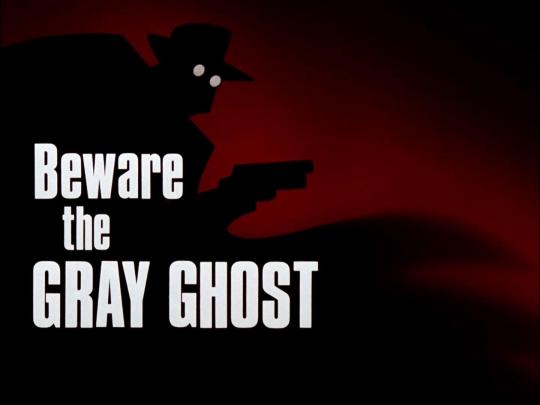
This is one of the greatest and most renowned episodes of the Animated Series…but as of these recent years, it’s also become one of the most difficult to talk about. In some ways, this episode is even more profoundly impacting now than it ever was before. It’s funny, because the reason(s) for this, I’m sure, will be lost on many future Batman fans; they will never know just how big a deal this episode was when it came out, and how big a deal it is now in this given year. Thankfully, however, those points will not detract from the greatness of this story on its own terms, and a great story is exactly what it is.
In this episode, Batman finds out about a series of bombings, committed by a mysterious villain simply referred to as “The Mad Bomber.” He recognizes the crimes as being almost identical, in every way, to the attacks of a fictional villain in a TV series that Bruce Wayne loved dearly as a child, “The Gray Ghost.” To try and solve the case, Batman gets help from the Gray Ghost’s original actor, an aging performer by the name of Simon Trent. Simon has seen better days, as the combo of his typecasting and other personal issues have led to him falling on hard times, and he’s grown bitter about the role that once made him a household name. Batman must find a way to not only stop the Mad Bomber, but reinvigorate Trent’s spirits, as he teams with the Gray Ghost himself to end the crime spree.
Much like the later “Legends of the Dark Knight,” this is an episode that essentially pays homage to Batman’s roots, but in a much more subtle way. I guess I can’t go any further without bringing up the big point: the voice of Simon Trent. It’s none other than Adam West: the original 1960s Batman. The creators of B:TAS were huge fans of the original Adam West series, and odes and homages to the show are sprinkled throughout, some more obvious than others. Trent’s character is one of the biggest examples, as his fictional foibles are a sort of exaggerated mirror of how West’s own career and life went after the 60s series ended. It goes even deeper than that, however: the Gray Ghost himself is a thinly-veiled parody of The Shadow, a character I’ve mentioned many times in the past, who was one of the main inspirations for Batman as a character. (The first Batman comic ever made was an outright ripoff of a Shadow story. No joke, look it up.) Even the villain of the piece feels more like something out of the Shadow than your typical Batman tale, let alone the silly sixties. It’s a double-homage, in a sense, to two great influences on the creators of B:TAS.
This is also what makes the episode hard to watch now: Adam West has been dead for only a few years now, yet, and Kevin Conroy’s passing is still even more painfully recent. You can’t watch this episode as a Batman fan without feeling a sort of pang, realizing not only the significance of two of the greatest Batmen in history onscreen together, but the fact that both are no longer with us. In a weird way, though, that makes the episode even more powerful, because of what the whole story is really about: nostalgia. The way nostalgia effects all three of the main characters in the story – Batman, the Gray Ghost, and the Mad Bomber alike – is a BIG part of this story. Trent is someone who tries to shun the past, who feels pained when he looks back, and has to come to terms with the fact the world has changed, and he has to change, too. He’s haunted by the role that made him once iconic, while also dealing with the issue of being seemingly obsolete, no longer sure of who he is or what his life has truly become. The Bomber, meanwhile, is the opposite extreme: without giving away who it is, it’s someone who clings TOO CLOSE to the past, and to the things they loved in youth, and that obsession drives them to toxic self-destruction, not to mention acts of cruelty and spite. It’s probably not a coincidence that Bruce Timm, one of the show’s creators – a fan of the 60s series – plays this character; a sort of self-parody in the form of the world’s most unsettling fanboy.
It's Batman himself who shows the value of nostalgia and the balance of where it needs to fall: he clings close to his past, as we know, and the Gray Ghost character and series is revealed to be no exception. But he doesn’t allow these things to rule him or destroy him. For people who grew up with Kevin Conroy and Adam West alike, this episode shows just what made both of them such special actors, and reminds us of why both of their respective takes on Batman were so interesting, while also providing a fascinating story that combines all kinds of tonal elements to create an intriguing and entertaining tale. But above all, it serves as a lesson in the dangers and the values of what we keep close in our memories.
I think it’s fair to say that everything about this episode – it’s actors, it’s inspirations, and the series it hails from – will be a treasured, nostalgic memory for many years to come.
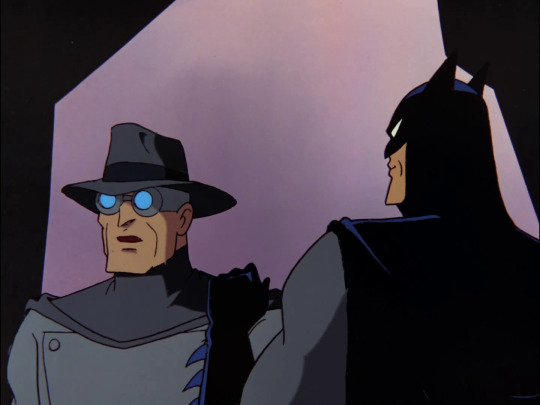
Tomorrow we move on with Number 8!
Hint: “But they share my unique face! Colonel Whathisname has chickens, and they don't even have moustaches!"
#list#countdown#best#favorites#new year's special#year of the bat#top 31 btas episodes#btas#batman: the animated series#dcau#dc#batman#animation#tv#number 9#beware the gray ghost#gray ghost#simon trent#adam west#bruce wayne#kevin conroy#mad bomber#bruce timm
11 notes
·
View notes
Note
dont answer this until you've watched at least 5 episodes of the series but I gotta know ur fave character rankings so far
ok I've watched 16 episodes so I'm answering this but forewarning I am SO BAD at actual rankings for ANYTHING and then ESPECIALLY characters I'll be like "this one is my favorite :))" and then want to talk about a different character all the time. I do that a lot I could make a list. but anyway let's do it
1. itadori. plucky anime protagonist is always gonna work on me it seems. love him he's so sweet he's a delight he's so silly I love him💖💖💖💖💖 also super interesting just by virtue of the whole sukuna thing which has been fun to watch cause sometimes it's funny as hell and then sometimes it's like oh yah that IS a demon right :/ anwayyyyy I love to see him on screen
2. fushiguro!! at this current point in time its moreso as a package deal with itadori type of thing, mostly cause I pick favorite characters by actually knowing them and I just don't feel like I really Know much about any of the characters yet, and most of his screen time is being gay rn. but I can tell he's gonna be really interesting. also I love his dogs🫶🫶🫶🫶 he has magic puppies🥹
3. zenin sisters. as a unit. something is Up there it’s obvious. (also that line from the one kyoto guy in the first exchange event episode?? "fushiguro has zenin blood, BUT (??? but??? emphasis on the but??????? the implications????) he's talented, even more so than the clan leader. *sideye at mai*" like. there's so much going on there I need to hear about it as soon as possible this is the first establishment that there are families Known in jujutsu circles and the zenin clan is one of them, but maybe not a good thing?? the emphasis that fushiguro has zenin blood (WHAT IS THE FAMILY RELATION??? ARE THOSE HIS COUSINS OR WHAT I NEED TO KNOW ABOUT THAT TOO) *but* (<-with emphasis) he's talented. implies that these are contrasting facts. zenin clan sorcerer quality on a decline maybe? (especially cause both of the sisters (probably the future of the clan) are low grade sorcerers, even compared to their amateur peers) I don't know what's up and I need to know expeditiously
4. nobara! a delight! she's just really cool I like her I think she's neat :))) the heart hammer is such a slay
5. geto. an absolute silly bastard. (affectionate. derogatory) yet very powerful and very interesting. are they typecasting his english va
#also I just think the zenin sisters are cool on their own even aside from probable family issues#like. maki can't see curses??? mai has a glock?????????#ask#booksandpaperss#hi elli!
13 notes
·
View notes
Note
comin' for u 👁 ... can i get a # 1 and a #13 w fries pls
1.) the character everyone gets wrong
…i’m actually gonna go with an hsmtmts answer on this one and say EJ Caswell! as a whole i have some hsmtmts opinions i haven’t gone into but people just don’t understand EJ’s character arc (or they don’t appreciate it, rather, because he momentarily got in the way of rina 😐). it’s like me and two other people on here that truly get that boy, it’s slim pickings out here 🥲
i will also say, as far as pjo—i’m not going to pretend to be the number one expert on leo valdez (or maybe i will lol), but…there’s a very small circle of people on this webbed site that fully /get/ him. like people get him, but there’s always something that’s just /off/…or to be fair maybe i have a very particular version of the boy in my head, and they have theirs, so whatever works for them (i’m too nice for this ask game lol)
also! nico. but he relates more with this next bit, so let’s get into it
13.) worst blorboficiation
nico (not niccolò tsats is not canon to me) di angelo.
i think no fandom is free from its fandom-y tropes, character archetypes, and shipping that utterly chips away at a character until they are nothing but Character A and Character B in an Incorrect Quotes post.
that being said, nico is a complex character. i was talking with my friend @cottieclub and my super sexy personal assistant editor @heavens-vault (lol) about this just yesterday. nico is a character that has these great and powerful arcs over time, and it can be hard to pinpoint how exactly to express his character. some people have different versions, kind of like what i said about leo—hell, I explore a different version of him in every different piece i write with him
but the point is about capturing the essence of his character, and i think sometimes the fandom can fall short and typecast him as The Emo Guy who lays in bed listening to mcr (same) and is Saved by his love interest (i was in that rabbit hole with Virgil sanders in sanders sides for Years don’t do this to me pjo fandom—).
i think as long as you acknowledge his nuance it’s fine to explore his character in a variety of different ways, but…part of a character being a blorbo is that you rotate them in your mind like a microwave potato, and you can’t rotate them if you…take away all their nuance…
#here’s those fries for you btw 🍟 hopefully this is coherent and thank you for the ask ✨#pjo#ej caswell#nico di angelo#leo valdez#rose’s asks
6 notes
·
View notes
Text
In 1968, Bullitt careened onto the big screen with a sophisticated, gritty take on the police detective. Frank Bullitt lived in the same gritty world of Noirs and Neo-Noirs as The Seven Ups and The French Connection, full of crooked cops and hardened criminals.
Six years later, having missed the boat and passed up playing Dirty Harry, John Wayne set out to once and for all throw off the cowboy typecast for the third or forth time at this point. Doing so, he made the film McQ, a 1974 film that tried to find synthesis between Bullitt and Dirty Harry and yet somehow is only notable for being the first movie to feature the Ingram MAC-10.
In watching McQ, I realized the fact that Dirty Harry is less pro-police violence than it is rebellion against rule of the weak who refuse to get things done (though the explosion of urban crime was very real this also translates to ROE in Vietnam at the time and the American Malaise era in general), and the constitutional violations in Dirty Harry were simply a direct translation of this ethos of rebellion, even if the film did serve as copaganda. Dirty Harry, for all its inner conservatism, was a raw young film, and the police brutality within it was some sort of twisted "sticking it to the man."
McQ isn't fighting the man, he *IS* the man inasmuch as until he beats an unarmed man in the bathroom for a murder he didn't commit but certainly hadn't been arrested for. McQ's the Seattle PD's golden boy, and unlike Bullitt (SFPD's golden boy), his breach of the rules isn't that of a troublemaker getting the bad guys any way he can, it's a man who's always been in power curb stomping the hippies who question that power.
This is a soapbox movie. It's preaching to the audience and it's inelegant about it. Your fox news uncle has more subtlety. I've always been fine with whatever narrative artists decide to push, as long as they do so in a sophisticated manner, and McQ is simply not that. It's clunky, preachy, and basically pushes the audience's face in its politics. Considering John Wayne's own proclivities, that isn't surprising.
What is surprising is the ending of this film. Not so much in content, as it ends basically the way you think it will once all the twists have unwound, but rather in how engaging it is. Out of all the films from this period, I would have never pegged the preachy conservatism film to have arguably the most beautiful and visually striking ending scene out of all of them. But it does, and though McQ might not know how to couch a political agenda in sub/metatext, it knows how to end a crime thriller. And for that I'll credit it, despite John Wayne's clear desperation for both political and Hollywood relevance.
4 notes
·
View notes